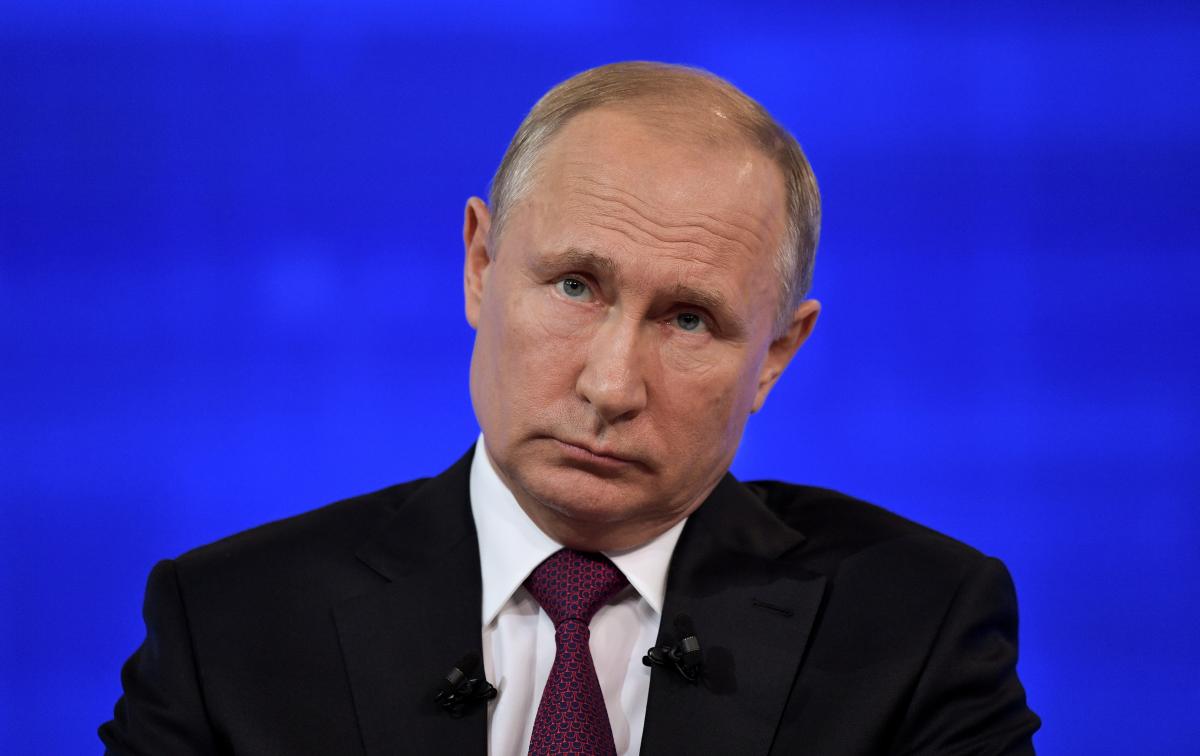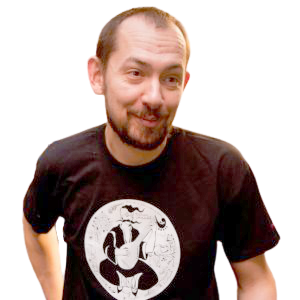Vladimir Putin communicates with the citizens in a unique format, indeed. The Russian leader is presented like a God, a Messiah, the ultimate authority able to resolve any issue of an ordinary Russian citizen. The Tzar’s dialogue with the people is aired by all national TV channels and radio stations.
There is a real competition going on each year on how many questions and appeals will be sent to Mr Putin. Another record was broken this time with 1.5 million appeals with just over a hundred lucky ones who had their questions voiced live.
Putin is the only person in Russia who can talk on Russian television about the problems of the country he heads. The rest of the time, the TV box tells people of the "horrors" of Ukraine and the threats of vile Americans. There's neither time nor need to be distracted.
It would seem that any Russian citizen could, along with their leader, embrace an international agenda and rejoice at the victories of their great country. But it's not the case.
Russians forget about patriotism and complain of poverty and injustice: meager wages, problems in health care, housing and bills for utilities, lack of medications, poor quality roads, landfills… One of the Russia channel's journalists, who are always loyal to the Kremlin, cites a rather offensive question from some viewer: "When will life get better, at least a little bit?"
It might seem it is, about a "rogue" neighboring country, as usual. But it's not the case, either!

It turns out that in the country led by Putin, there are teachers and firefighters making RUB 10,000-12,000 (UAH 3,800 -4,500). That is, in Ukraine, which is about to "freeze" or "go bankrupt", wages may be even higher in the public sector! Things can actually be better in Ukraine, where the president is a "clown" – better than in Russia where Putin is at the helm and where there's "stability, oil and gas".
The scope of appeals to Putin reflects the incompetence of local authorities. For some reason, it's only Putin himself who can solve someone's problem. Or at least, he may promise to do so.
Complaints from across Russia are clearly not something the Kremlin chief is particularly keen in addressing. Another thing is geopolitics and confrontation with the West! By the way, some "enemy forces" nearly interrupted the Direct Line event. The host announced that "foreign hackers" had attacked the call center. But Russia has prevailed!
One of the hosts even suggested a terrible thing: if Russian economy has faced problems that many people associate with Western sanctions, maybe it is worth "reconciling with everyone"? What will happen if Russia fulfills the demands of the Western powers and agrees with everything?
Read alsoPutin says accusations of occupation of Donbas "total nonsense"
Vladimir Putin reassures: there is no need to reconcile because there was no quarrel with anyone in the first place. He explains that China is also facing problems although it has nothing to do with Crimea and Donbas. "We are being accused of having occupied Donbas – this is complete nonsense and a lie," Putin complains.
And here a question arises: Why, reflecting on China's problems, he links up the occupation of Crimea and Donbas, but doesn't do so while addressing the issue of sanctions imposed against Russia, just pretending that there is no connection?
Immediately, as Putin talks about the benefits of sanctions, it turns out that Ukraine is actually a foreign country, because it was "from abroad" where Russia previously used to buy ship engines. It was the Mykolayiv-based Zorya-Mashproekt Plant, actually. But such subtleties are no longer voiced out loud – they are only seen between the lines.
It seemed like a good time to rejoice at the successful departure from cooperation with Ukraine, but the next question is being asked from Russia's distant Tyumen region where for some reason, for years, there has been no water supply in one of the villages. "Mr Putin, help!"
As the "Direct Line" goes on, it turns out that there are a lot of calls from abroad. People are calling from London, Paris, Zurich, Hanover, Hamburg ... Maybe they also have no running water? Moldova and Belarus are trying to get through… Even someone from Ukraine's Odesa asks whether Putin will come "to us, to Ukraine." That's a question with a trick to it! What are they saying?! They don't want to be Novorossiya, brazenly calling themselves "Ukraine"! And also, if the Russian president actually decides to visit Ukraine's southern city, will the Russian military be "going on vacation", and will people in Odesa face a Russian know-how in the form of curfews, tested for the past five years in Donetsk and Luhansk?
This time, one lucky Ukrainian journalist (or that's how he was presented) Valery Shvets has managed to ask Putin about Viktor Medvedchuk and the exchange of prisoners of war. The Kremlin chief showered his crony and family friend with plenty of compliments. It turns out that no one can reach deals with Putin, but Medvedchuk can – so go vote for his party! The only small thing yet to be done is to release captured Ukrainian citizens. By the way, it was perhaps the first time when Putin didn't even protest the suggestion of one day swapping Russian propaganda operative Vyshinsky for Ukrainian film director Sentsov. Well, at least he promises to think about it.
For Putin, this was already the 17th Direct Line, so he is now a grand master, and does not hesitate to emphasize this, playing on contrasts. Vladimir Putin even recalled the time when he had already begun his presidential mission in the 2000s. Volodymyr Zelensky was only performing in the KVN stand up show in Moscow back then, Putin reminds his audience.
And here's where the most interesting things start.
Read alsoPutin on Vyshinsky-for-Sentsov swap: "We have not forgotten"
Putin bluntly says that, if Zelensky wants peace and promised it to his voters, he must fulfill Moscow's main demand to start a "direct dialogue" with Russian puppets in Donbas. The Kremlin thinks that the talks in the Trilateral Contact Group are not enough. Moscow wants Zelensky to recognize that there's "civil war" in Ukraine and say that "there are no Russians in Donbas".
Surprisingly, Putin also demanded the same from the former president of Ukraine.
Poroshenko never did standup, and no one called him an inexperienced politician, but Moscow’s approaches are identical.
Wrapping up his huge Q&A, Putin put it straight: "We want to give the new Ukrainian leadership a chance."
But if there are no Russians in Donbas, why does the Kremlin continue to give these "chances"?
Roman Tsymbaliuk


